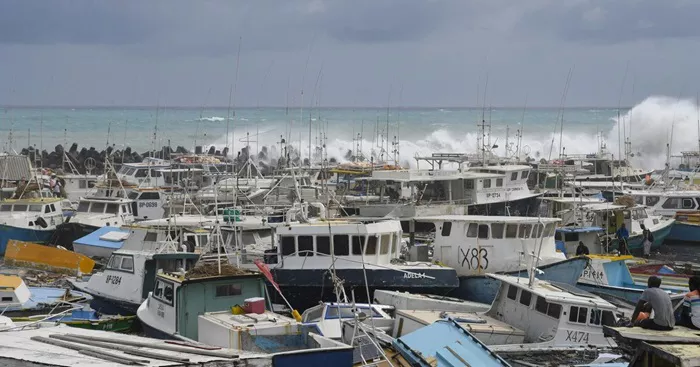In the aftermath of Hurricane Beryl’s powerful assault on the Caribbean, the true extent of the storm’s damage to health care infrastructure is becoming apparent. Clinics are struggling to function without electricity and running water, with some unable to operate at all. The severe impact on health care facilities highlights the urgent need for extensive support and recovery efforts.
Despite the hurricane’s intensity, a low death toll has been reported, thanks to coordinated preparedness and safety measures across the region. So far, 11 deaths have been confirmed across Grenada, St. Vincent and the Grenadines, Jamaica, and Venezuela. This low number is a testament to the effectiveness of pre-storm planning and information dissemination.
However, the damage caused by Hurricane Beryl has introduced significant risks, particularly to health care services. Natural disasters often have long-lasting impacts on health systems, from immediate concerns like injuries and contaminated water to long-term issues such as interrupted care for chronic conditions, loss of homes and jobs, and increased mental health needs.
In Grenada, initial damage assessments by the National Disaster Management Agency, the Ministry of Health, and other responding organizations have revealed widespread destruction. Approximately 98% of structures on Carriacou and Petite Martinique have been damaged or destroyed. The Princess Royal Hospital on Carriacou suffered damage to its roof, solar panels, and hot water system.
The Pan American Health Organization (PAHO), a partner of Direct Relief, reported that 37 out of 41 damaged health centers in Grenada remain operational, albeit some without electricity and relying on trucked-in water. Access to affected areas is severely hampered by blocked roads, downed trees, and debris.
PAHO’s assessments in St. Vincent and the Grenadines found that out of 49 health facilities, 38 are still operational despite sustaining damage. However, all health facilities in the Southern Grenadines are non-functional due to extensive damage. The compromised state of medical refrigerators and vaccines poses a significant health risk to the population.
Hundreds of people are still in emergency shelters across the nation, struggling with blocked roads, widespread power outages, and flooding following over 12 hours of heavy rainfall.
Direct Relief is actively coordinating with regional partners, including the Organization of Eastern Caribbean States, PAHO, and local health ministries. The organization’s emergency response team is participating in coordination meetings convened by the Caribbean Disaster Emergency Management Agency and PAHO.
In anticipation of Hurricane Beryl’s landfall, Direct Relief strategically positioned supplies. A Hurricane Preparedness Pack, capable of providing essential medicines and supplies for up to 1,000 people for 30 days, was transported to Grenada from St. Lucia. This pack was accompanied by three emergency medical backpacks. Additionally, a second shipment of 20 cots and 20 canvas tents from Direct Relief’s stockpile in Puerto Rico arrived on July 8, aiding the Ministry of Health in setting up emergency medical tents and shelters on Carriacou Island.
On July 3, another Hurricane Preparedness Pack and 200 hygiene kits were dispatched from Direct Relief’s warehouse in Santa Barbara, California, destined for the Ministry of Health of St. Vincent and the Grenadines. Medical Professionals on a Mission, a rapid response team of healthcare providers, also received 10 emergency medical backpacks to support emergency health and humanitarian needs.
Further shipments of medical supplies and emergency aid are being prepared to replenish depleted stocks and meet ongoing needs. Direct Relief continues to consult with regional partners to identify necessary medications, supplies, and equipment to address the pressing health care challenges in the wake of Hurricane Beryl.
This robust response underscores the importance of preparedness and the collective effort needed to support health care systems and communities recovering from the devastation wrought by natural disasters.
Related topics:
- Church Ministers Lead Public Health Efforts in Pacific Communities
- Leonard Bachman, Former Pennsylvania Secretary of Health and Public Health Pioneer, Dies at 99
- PAHO Executive Committee Convenes to Tackle Epidemic Intelligence and Climate Change Impacts on Health


